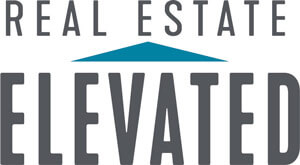A lot of new house flippers tend to be confused about business licenses, but for good reason. The world of business can be overwhelming, especially when you aren’t sure what direction you are supposed to be going in.
Consider this. Are you planning on flipping one or two houses a year while still holding on to your full-time job? Or are you going to start seriously pursuing house flipping and relying on it as your main source of income?
If you decide on the latter, you will need to get a business license. Sounds easy enough right? Not so fast, this is where things get a little more complicated as you have a number of options to choose from. The most common business types include sole proprietor, S-Corp, LLC, or C-Corp. But don’t worry if this sounds like a foreign language. While each of these structures has advantages and disadvantages, I really just want to focus on an LLC as that is what I feel is best route for house flippers.
After weighing all of the types, Christina and I decided to go with an LLC for our business for a number of reasons. These are just a few of the pros and cons of an LLC that stood out to us.
PROS OF AN LLC
With an LLC, you can keep your personal belongings, assets, and funds separate from your real estate investment business. That way, if something terrible happens to the business, your personal assets will be largely left alone.
At the same time, there’s no limit on the number of owners an LLC can have. That means, if you decide to partner with another investor, you won’t have to go through the process of dissolving your LLC and creating a new entity. Instead, you can just add them as an owner, and you’ll both be protected under the company.
Another option would be to incorporate your business, but that comes with a lot of changes that you might not be a big fan of. And it’s more expensive than forming an LLC, too. An LLC is probably the most cost-effective means to protect yourself and your business.
Not only is forming an LLC cheaper than incorporating, but it also involves a lot less paperwork. In general, if you’re looking for the fast and easy way to get the benefits you need from incorporating without actually going through the hassles of incorporating, then forming an LLC is the way to go.
CONS OF AN LLC
If you’re operating as an individual investing in real estate, you can just use your personal bank account for your capital. If you form an LLC, you’ll have to open a new business account specifically for your company. This can get a little bit more complicated as far as dealing with your finances, and you might end up owing your accountant more at tax time, as well. An LLC is also more expensive to form than other businesses, but the price difference is nominal.
Whether you decide to continue house flipping as a side hobby or you decide to transform it into a business, your need for a business license will essentially depend on what route you decide to take. You can learn more about starting a house flipping business by attending our Real Estate Elevated workshops.
For more answers to frequently asked questions, visit the Real Estate Elevated FAQ.
